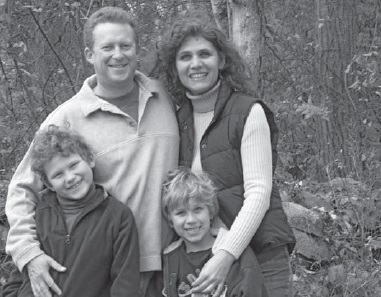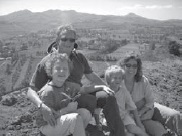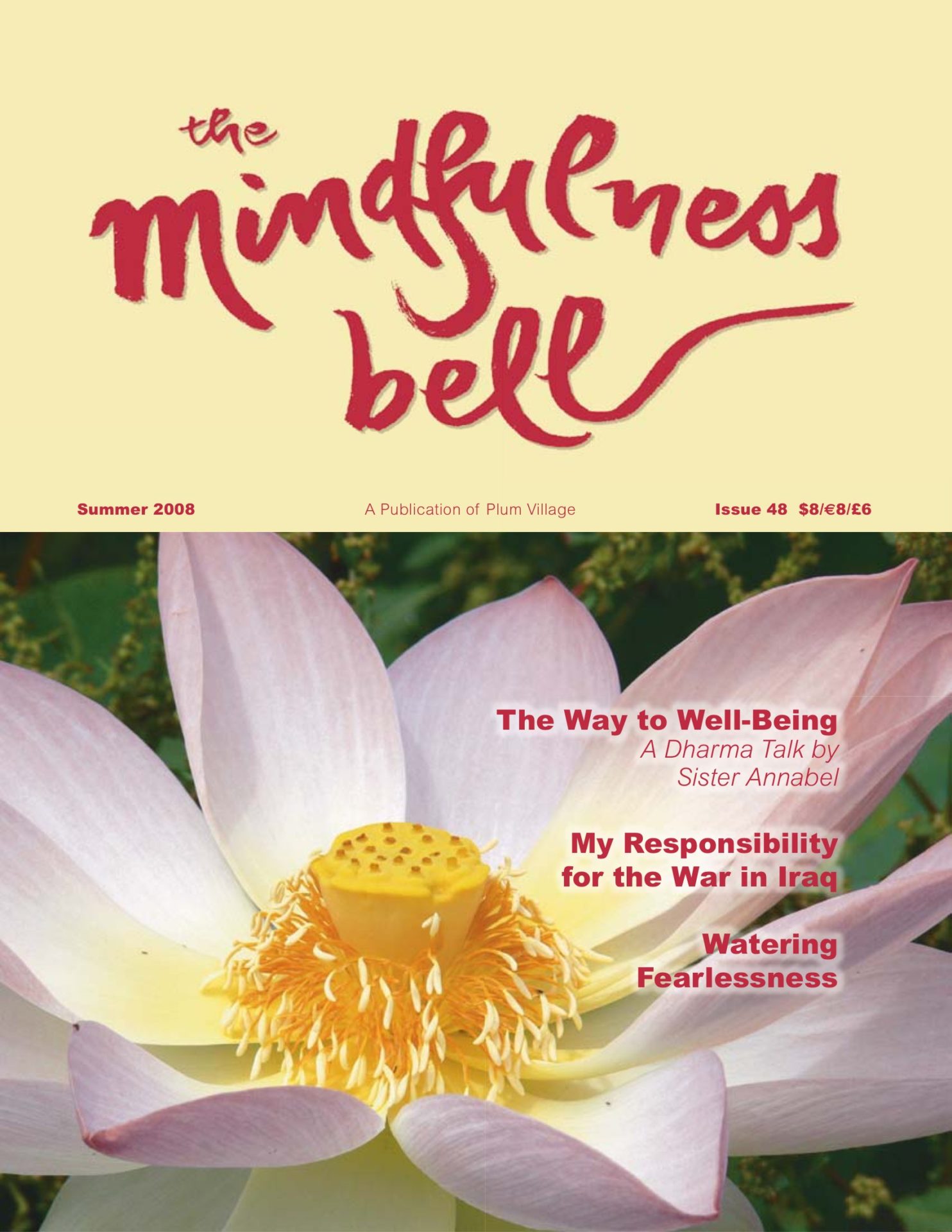The Dharma in Tanzania
By Karen Brody


Thay’s teachings have been words deeply etched in my heart for years, but this summer was the first time I encountered their true meaning. My husband’s work for an international non-profit took us to Arusha, Tanzania. What luck, we thought, that we had found a location in Africa that was suitable to live in with children.
The Dharma in Tanzania
By Karen Brody


Thay’s teachings have been words deeply etched in my heart for years, but this summer was the first time I encountered their true meaning. My husband’s work for an international non-profit took us to Arusha, Tanzania. What luck, we thought, that we had found a location in Africa that was suitable to live in with children. We had lived in Nairobi, Kenya and had complete clarity that Nairobi’s routine aggressive violence was not an atmosphere in which to raise our children. Johannesburg, similar in its extreme violence, where people not only lived behind gates (routine in Africa) but talked about how many levels of security they had before intruders could get to them, also felt like an unacceptable life to me. But Arusha — a small yet rapidly growing town an hour from Mount Kilimanjaro, protected by Mount Meru, and the gateway town to the Serengeti, where five years ago security companies didn’t even exist — it seemed perfect.
Here’s what happened ten days after arriving in Arusha with our six and eight-year-old boys.
My husband returned home just past midnight after dropping off a friend at her hotel after she had dinner with us that night. The night guard opened the gate; my husband drove in, got out of his car, and went to the gate to lock it from the inside with a padlock. He heard a man say, “Open,” so he opened the gate. Three gunmen were holding the guard, guns to his head. Two guns immediately went to my husband’s head and the gunmen led him and the guard to our house, ordering my husband to open the door. I was downstairs when the door opened and at first I noticed just my husband walking in, very pale. Then I saw the gun. A second later I saw the first gunman. I gasped in a whisper, “Oh my God!” as one of the gunmen ran over to me and pointed his gun at my head. In that instant the words of the Dharma popped into my mind:
Life is impermanent.
These words bathed me. I felt clear and strangely calm as the gunmen sat us down on the couch, took our wedding rings off and tied my husband up on the floor with wire. I repeated to myself:
Impermanence.
The tallest gunman led me upstairs. As we approached my children’s bedroom he put his gun to my nose and told me if I did anything stupid he was going to shoot me and my children. I breathed deeply thinking:
Breathing in,
Breathing out,
I am free.
As I repeated to myself “Breathing, Free” my thoughts became illogical in a Western sense. Logic would have told me to hate this gunman; instead I felt deep compassion. Thay’s teachings flooded my body and mind.
“Where Are the Dollars?”
In my bedroom the gunman shouted at me, “Where are the dollars?!” We actually only had fifteen dollars in the house that night. I emptied my wallet. He was getting angrier. “Where are your jewels?” he demanded. I gave him the few things I carried with me. No diamonds, nothing expensive. “Where’s your husband’s gun? Get the gun!” The gun? It had never dawned on us to get a gun. Even my husband, not a practicing Buddhist, felt that violence is never solved with more violence. There was no gun.
Unhappy with what I had produced the gunman put his gun to my head and told me I must find him some money and jewels. So I ransacked the room, and as I threw our belongings on our bed another mindfulness moment occurred.
Breathing in,
I see the goodness inside of you,
Breathing out,
I smile at your goodness.
It was obvious to me at that moment that the gunman wasn’t looking for money or jewels; what he was really looking for was love. So I watered the flower in him. As I dropped my clothes on the bed I imagined each piece of clothing filling the robber with love. Fifteen minutes later he brought me downstairs and tied me up on the floor next to my husband and the guard.
Tied up on the floor, my hands and feet tightly wired together, I thought: I should be scared. But then I heard Thay’s voice whisper to me: Call them by their true name. So this is what I did. I recited:
Please call me by my true names,
so I can hear all my cries and my laughs at once,
so I can see that my joy and pain are one.
Please call me by my true names,
so I can wake up,
and so the door of my heart can be left open,
the door of compassion.
Lying on the floor, face down, I repeated to myself, “Wake up, Compassion” as the gunmen put all of our computers and electronic equipment in bags to steal.
The Open Door of Compassion
Our Kenyan friend, Rose, was staying with us. Rose is a poor African woman who had been our maid in Nairobi years ago. She came down to help us settle in and meet our boys. I consider her a member of our family, which is why she was living in our home, not typical in Africa. The tall gunman spotted her room and asked me, “Who’s in here?” “Our friend,” I replied. He walked in. Rose later told me she wasn’t sleeping, and because our floors were concrete and the gunmen spoke to us in a whisper she did not know anything was happening inside the house, but of course she was shocked to be taken out of bed in the middle of the night. They tied her up also in the living room, searched the house again for money and jewels and then untied her, took her into her bedroom … and raped her.
Breathing in,
Breathing out.
I didn’t know at the time she was being raped, but that’s what the tall gunman did. He raped her. And then, twenty minutes later, after talking for a while about taking me with them in one of our vehicles that they stole to get away, the gunmen tied heavy cloth over our mouths so we would not scream and put all four of us in Rose’s room, tied up, in the dark.
Untying wire is not easy, but I got free first. Then the guard, then my husband, and finally after I shouted out “Rose, are you okay?!” she slowly sat up. “Thank goodness they did not hurt the kids,” were the first words from her mouth. It was only later that she told me she had been raped.
I expected logic to rise up in me; I expected to feel mad. How could they have done this to Rose? Yet, again, instead the Dharma surfaced and I found myself not angry at the gunmen. The news that she was raped just made me want to water the seeds of love in the gunmen even more. My intellectual self thought, this is crazy, how could I not be mad? It felt like a betrayal of Rose to not be mad at them. Surely, Rose was mad.
Two nights after the incident, with my family and Rose settled into the safety of a hotel room in Arusha, Rose slipped a note under my door that I discovered at bedtime. She wrote of moving on from the experience. And at the end she wrote, “Let’s get better, not bitter.” At that moment it was clear to me that she was watering the same seeds I was. The Dharma lived in her as well.
We left Tanzania one month later having lost over $30,000 from the move to Arusha, and we returned to the United States without a home, job, cars, or a school for our children to attend.
Thank you, Thay, for your teachings. Love and compassion is the only way forward. Of this I am clear.

Karen Brody is a member of the Budding Flower Sangha in New Paltz, New York.

